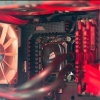Project CARS devs address AMD performance issues, AMD drivers to blame entirely, PhysX runs on CPU only, no GPU involvement whatsoever.
- Prev
- 12
- 13
- 14
- 15
- 16
- 17
- 18
- 19
- 20
- 21
- 22
- Next
- Page 17 of 40
- Prev
- 12
- 13
- 14
- 15
- 16
- 17
- 18
- 19
- 20
- 21
- 22
- Next
- Page 17 of 40

This topic is now closed to further replies.
Share
Followers
13



















